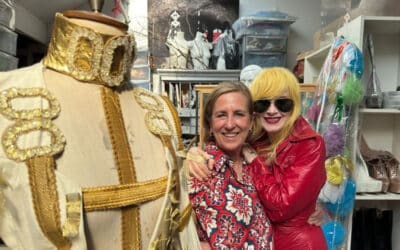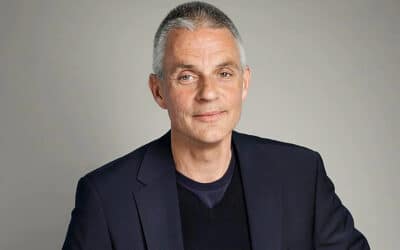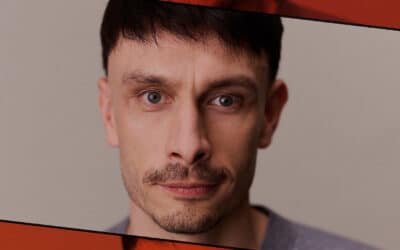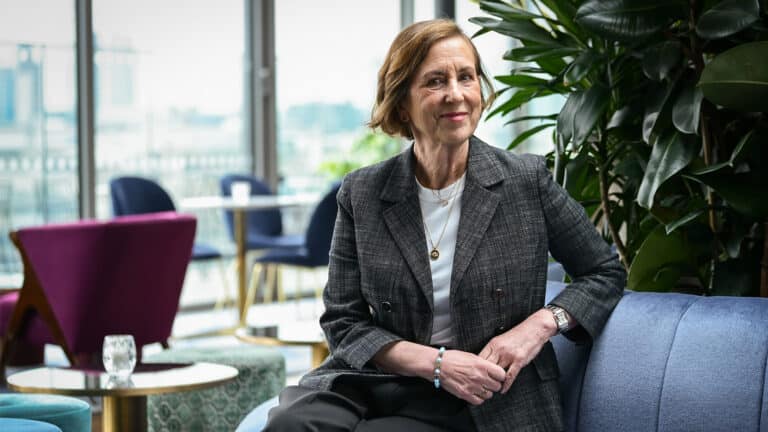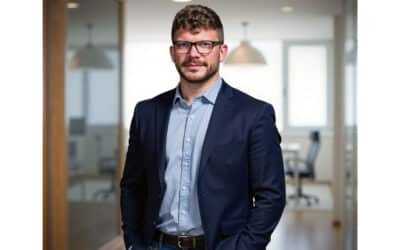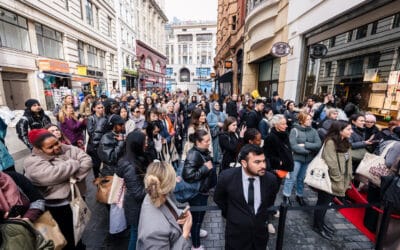From Barack Obama to the importance of production outside of London, Kirsty Wark has been speaking to Prolific North, after it was announced she was to receive the BAFTA Fellowship.
Wark will receive the award at next month’s Bafta Television Awards with P&O Cruises.
“[I found out] on my birthday – and it was a big birthday too, so that was even wilder. And it was genuinely a big shock, I really had no idea,” she said.
“I’m not hanging up my notebook though, but you know having left Newsnight last year, I’m still doing documentaries and radio. But the Fellowship is special, it’s your peers, so it’s just a treat, what a treat.”
Fellows previously honoured by Bafta for their television work, include the likes of Meera Syal CBE, Sir Billy Connolly, Jon Snow, Sir Bruce Forsyth, Melvyn Bragg, Michael Palin, Sir Trevor MacDonald, Sir David Attenborough, Dame Julie Walters and Kate Adie CBE DL.
“There’s a lot of male names there aren’t there? It’s very male dominated. If at least I’m doing one thing, I’m adding another digit!”
A trailblazing journalist, she presented Newsnight for 30 years and was also the founder of the Glasgow-based Wark Clement production company, which later merged with IWC and was sold to RDF (now Banijay) in 2005 for £14m.
Wark’s career started in BBC Scotland and remains proudly based in the country, but did she feel pressure to move to London at the start of her career?
“I actually came down to London as a radio producer, to work for The World at One and PM, and they kept extending my attachment and then they wanted me to stay. But at that time, I didn’t want to remain in London. I always thought it was, not a better perspective, but a different perspective when you’re in Scotland,” she explained.
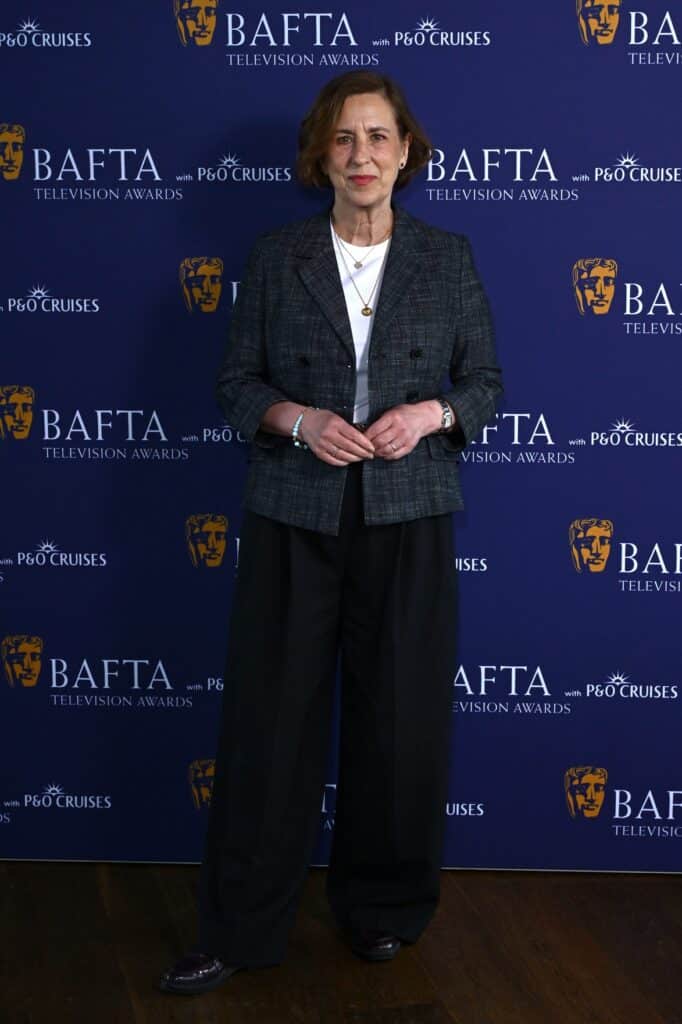
“And at the same time, BBC Scotland were offering these two trainee film director jobs. So I was trained as a film director and actually a studio director. Not that I could direct my way out of a paper bag now! But I went back to do that. That was my move into television.”
In 1988 Wark was one of the first television journalists to arrive on the scene when PAN AM Flight 103 was blown up in the skies above Lockerbie.
Two years later she gained even more fame, speaking to Margaret Thatcher in a headline grabbing interview, which brought her into the national spotlight.
“I did the Thatcher interview when I was pregnant with Caitlin, nobody knew I was pregnant, except me and Alan (her husband).
“I think one of the reasons I was so calm was that I had done my homework, but I was not going to put myself through any stress. I just made sure I was calm as a cucumber during that interview.”
But it could almost have been a very different career path, as Wark told us that she had never planned to go on-screen.
“It was accidental, because I was a producer and it wasn’t my intention to become a presenter.”
It was the “hard-nosed” George Sinclair, the former BBC Scotland Head of News, who spotted her.
“He was a typical former newspaper editor with the braces and all, but was actually very kind and thoughtful.
“I literally stood in to do interviews for a political program to check the lighting and we were just having banter. I didn’t even know he was watching, but afterwards he said ‘I actually think you should try your hand at this.’
“So that’s how it happened. I mean, as I say, it wasn’t my intention. Then I did maternity cover for Sally Magnusson, a friend of mine, on Breakfast Time. Then I went on to the Late Show, which I adored. But who’s going to an hour’s worth of arts programming out at midnight now? It was wonderful!”
READ MORE – ‘A real wrench’: Legendary BBC Scotland presenter quits flagship news show after 27 years on air
Having interviewed politicians and celebrities like Madonna, Harold Pinter, Pete Doherty, Damien Hirst and George Clooney, does she have a favourite interview?
“I think someone like Harold Pinter, definitely, because it was his last big interview. Joan Didion at her home in New York, she produced a book after the death of her daughter, Quintana, called Blue Nights. Then there was Philip Roth up-state at his house, which was great.
“But the ones I remember more are the ones like when I went to Cleveland, Ohio to interview the two girls, who had been held by Ariel Castro in his house for 14 years.
“Their dignity was extraordinary. They had access to television in the basement, and he allowed them to watch it. And one of them, Amanda Berry, she literally had a baby down there. He had raped her. And when the baby was a toddler, she used to put empty Kellogg’s packets out and draw traffic lights and explain ‘this is what happens when you’re going to go outside.’ She just made this world for her daughter.
“But in the interview, I asked, was there anything particular on television that she watched down in that dungeon? And she said: ‘Well, we watched, William and Kate’s wedding.’ And I said, oh, what did you think of that? She said, ‘it was great. But you know what? I thought Kate’s dress was too plain,’ she was expecting a fairytale one.
“And, William and Kate had been watching the programme that night – just shows you who watches Newsnight – and William got in touch to say he wanted to write to them. It was the most incredible, moving story of these young women.
“Things do get through.”
Obama
Is there an interview that’s got away, one you’d want to do?
“I think it’s time now to interview Obama. There’s so much to ask. It’s not all about Trump. It’s about chemical weapons in Syria. It’s all sorts of things. It’s definitely time to ask, questions of Obama. I would like to do that very much.”
And arguably, if you’re American, ask his wife a few questions as well as to what she’s going to do next?
“Is she going to run? Exactly. And has the weather changed in America about that as well.”
We end by returning to the UK and the nations and regions and whether things have changed in her opinion…
“There’s a lot of work to do. I think that things have changed massively. You know, when we moved to Pacific Quay, we were a centre of excellence for arts and television. There’s a big children’s presence and so forth. But I think there’s a danger of retrenchment here for all sorts of reasons.
“We need to get production out of London and keep pushing that production out of London because people can’t afford to take the jobs.
“It’s such a precarious industry. And talent comes from everywhere, every part of the country. And to be fair to Netflix they’ve been spreading a bit of the love.”
Adolescence for example?
“Who knew? We want risk taking. Massive risk-taking and Adolescence was a massive risk.
“I’ve thought a lot about Adolescence… Do you know why it’s been so brilliant? Because it’s like part of a parental toolkit. And if you’ve got subtitles, it can be the toolkit in every country as well.”
Wark continues to host BBC Radio 4’s long-running flagship series The Reunion and regularly presents Start the Week and Front Row. She also presents arts programmes on TV and Radio, cultural history series such as The Women Who Changed Modern Scotland and Panorama specials.
The Fellowship will be presented to Kirsty Wark during the 2025 BAFTA Television Awards with P&O Cruises ceremony on Sunday 11 May at the Southbank Centre’s Royal Festival Hall.
It will be hosted by Alan Cumming and will be broadcast on BBC One and BBC iPlayer.
[Photo Credit – Eamonn McCormack/BAFTA/Getty Images for BAFTA]

